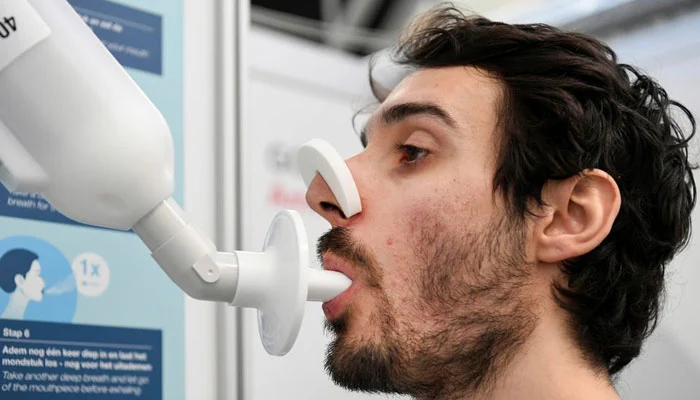- Chemicals in patients’ breath, sweat, and tears can point towards cancer.
- All organisms release volatile organic compounds.
- Robots being able to smell diseases is a concept called “volatolomics”.
Detecting diseases might become easier in the future with robots’ ability to “sniff” hidden illnesses, surprisingly including cancer, by smelling a person’s breath.
Scientists are trying to find out techniques that can analyse chemical compounds in patients’ breath, sweat, and even tears and point towards diseases. Experts believe these chemicals are like “fingerprints” leading to diagnosis.
Researchers call the concept “volatolomics” and make it clear that the robot will not be commercially available at any time.
Whenever we smell anything, the nose encounters volatile organic compounds, which evaporate very quickly and have a low boiling point. These are the products of human metabolism that can be excreted out in some form.
All organisms release VOCs for various purposes like communication, reproduction, and even defense. Similarly, the body releases VOCs as a response to biological changes as well like falling sick.
Electronic noses (e-noses) have been found to have a high level of diagnostic accuracy for the detection of cancer in exhaled breath according to a systematic review and meta-analysis by a group of Dutch researchers.
A combination of gas-chromatography and mass spectrometry (GC-MS) can study exhaled breath samples.
A study, for example, suggested that ovarian cancer has certain markers.
In the review article on Hospital Healthcare Europe, 52 publications that included more than 3,000 cancer patients (including lung, gastric, breast, and prostate) were included in the analysis .
While volatolomics is a relatively new concept, scientists report that the idea has existed for centuries. Back then, however, scientists did not have the technology to experiment.
With machine learning and artificial intelligence, scientists can put their knowledge to use. Nanomaterial sensors, for example, can accurately recognise VOC fingerprints coming from food, beverages, pollution, and people.
The findings appeared in the journal Nano Research and Hospital Healthcare Europe.

